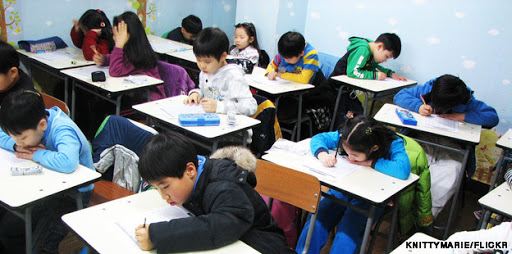
During the second week of this most recent semester, my sociology tutor assigned us to complete brief comparative studies of cultural phenomena. Whereas other students examined broader systems and sociological trends, I was advised by my tutor to personalise my response to connect my work closer to my own experiences. As such, I delved into the world of private tutoring, particularly touching on the culture within South Korea and Taiwan. Education in these countries operates not just as a means of individual achievement but as a deeply ingrained cultural practice shaped by history, values, and economic structures.
In South Korea, tutoring is more than a supplement to schooling—it’s an integral part of the educational journey. With competitive university entrance exams at the centre of academic life, private tutoring, particularly through hagwons (for-profit private tutoring academies), reflects a cultural prioritisation of effort and perseverance (Kim and Lee, 2010). These institutions, far from being mere businesses, respond to a society where higher education is closely tied to career success. This ambitious system also presents challenges, such as unequal access for families with fewer resources. Still, it highlights South Korea’s collective commitment to education as a tool for advancement.
Taiwan’s approach is slightly different but no less revealing. Tutoring here often balances two goals: supporting students who need additional help and offering enrichment to those aiming higher. This dual role reflects a broader cultural ethos of striving for collective betterment while accommodating individual aspirations (Huang, 2013). Rather than focusing solely on competition, Taiwan’s tutoring culture demonstrates how education can adapt to serve diverse needs within society.
Both systems represent how deeply education reflects the values and priorities of a nation; neither inherently good nor bad, instead embody responses to complex social, economic, and cultural pressures. Educational systems evolve to meet national goals and individual expectations—and they sometimes fall short in addressing disparities. Ultimately, these insights go to show that education is never just about learning; but truly a mirror of a given society.
Toby Bower

